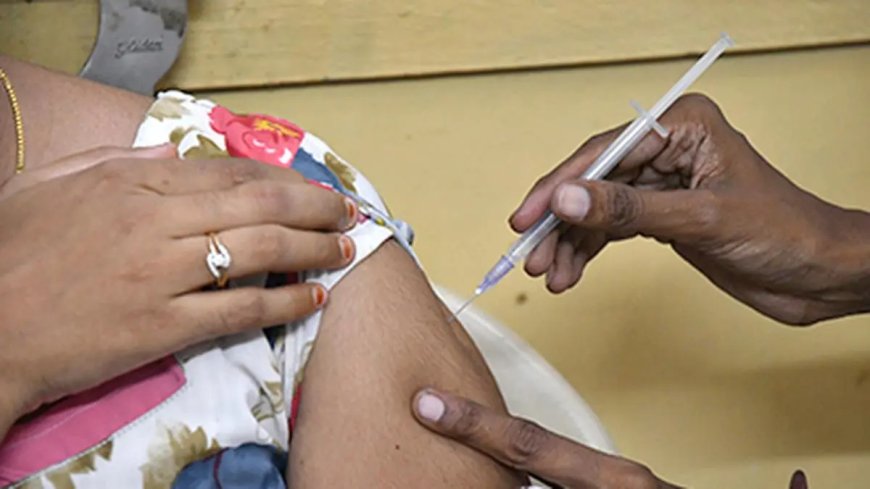HPV and Cancer Cases Rising Among Indian Youth, Doctors Warn
Oncologists in India are alarmed by the increasing cases of HPV-related cancers among young Indians in their twenties and thirties. The lack of awareness and social stigma surrounding HPV are contributing to poor vaccination rates and screening coverage. Urgent measures, including vaccination, early screening, and public education, are crucial to prevent a potential cancer crisis.

A growing number of oncologists across India have expressed concern over Human Papillomavirus (HPV) becoming a major contributing factor in the rise of cancers in young Indians, particularly among those in their twenties and thirties.
With increasing cases of cervical, oral, and oropharyngeal cancers linked to HPV infection, experts believe India is on the brink of a preventable cancer crisis if urgent measures are not implemented.
Dr Ashish Gupta, Chief of Medical Oncology at Amerix Cancer Hospital, New Delhi, said, \"HPV-related cancers are striking far earlier than we used to see. Patients in their twenties are coming in with cervical, oral, and throat cancers - many of which could have been avoided entirely with timely vaccination and proper awareness.\"
\"What's most heartbreaking is that HPV is preventable, yet many families and individuals are not even aware of the risk,\" Dr Gupta said.
Unlike other cancers that develop over decades, HPV-related cancers in young people often progress rapidly and silently.
Prevention through vaccination and early screening should be treated with the same urgency as any national health emergency.
\"We need a focused, stigma-free, countrywide campaign that reaches schools, colleges, and parents,\" Gupta said.
The virus, which spreads primarily through intimate skin-to-skin contact, is known to be one of the most common sexually transmitted infections globally.
While the body clears most HPV infections on its own, certain high-risk strains can persist and lead to cancer.
In women, it is the leading cause of cervical cancer, while in men and women alike, it is now strongly linked to oral, anal, and throat cancers.
What troubles experts further is the lack of awareness and the social stigma that surrounds HPV discussions in India -- leading to poor vaccination rates and negligible screening coverage.
Dr Shubham Garg, Senior Oncologist at Dharamshila Narayana Superspeciality Hospital said, \"HPV-related cancers don't give you many symptoms early on. That's why routine screening is so vital. A young woman with no symptoms may already have precancerous changes in the cervix. Similarly, oral HPV infections in men often go unnoticed until they present with full-blown tumors. Without education, vaccination, and routine checkups, we're allowing preventable cancers to spread unchecked.\"
Currently, India does not have a national HPV vaccination program for all adolescents, although the vaccines are approved and available in private settings.
Global studies have proven that vaccinating both boys and girls before they become sexually active significantly reduces HPV transmission and related cancers.
Experts believe that adopting universal HPV immunization for preteens, along with catch-up vaccinations for older teens and young adults, is the most effective strategy to curb this epidemic. However, vaccination alone isn't enough.
Dr Ashish Gupta further said that screening must become as commonplace and normalized as any other preventive health check.
\"Our focus must be twofold -- educate and empower. The stigma surrounding HPV has kept us silent for too long. We must normalize conversations about the virus and its connection to cancer. Pap smears, HPV DNA tests, and oral screenings should be accessible in every district hospital and primary health center,\" he said.
\"Moreover, we need policies that include these services under national insurance schemes so that cost is never a barrier. We are not talking about an incurable disease. We are talking about a cancer that we can, in many cases, prevent before it even begins. That's a rare opportunity in oncology and one we must not waste,\" Dr Gupta added.
Dr Rahul Bhargava, Senior Oncologist at Fortis Memorial Research Institute, Gurugram concluded with a powerful reminder, \"Every vaccinated child is one less cancer case in our future. Every screening that catches early-stage HPV impact is a life redirected toward health and hope. Let's not wait until it's too late. Prevention, in this case, is not just better than cure'it's the only rational path forward.\"
According to the source: The Hindu BusinessLine.
What's Your Reaction?
 Like
0
Like
0
 Dislike
0
Dislike
0
 Love
0
Love
0
 Funny
0
Funny
0
 Angry
0
Angry
0
 Sad
0
Sad
0
 Wow
0
Wow
0























































































































































